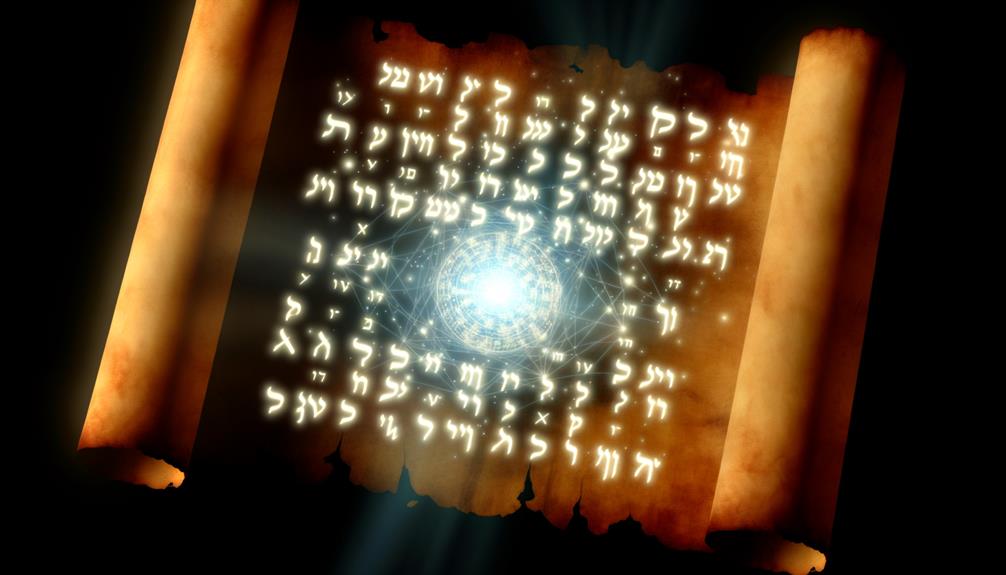716 Meaning In The Bible: Divine Symbolism
While the number 716 does not explicitly appear in the canonical scriptures, its individual digits—7, 1, and 6—each hold profound theological significance. In biblical numerology, 7 represents divine perfection (Genesis 2:2), 1 symbolizes unity and the primacy of God (Deuteronomy 6:4), and 6 is often associated with humanity and imperfection (Revelation 13:18).
Analyzing these numbers together suggests a narrative of divine completeness and human shortcomings. Further study into the historical and symbolic meanings of these components can offer enriched insights into their collective significance.

716 Meaning in the Bible: Spiritual Significance and Symbolism
| Aspect | Explanation |
|---|---|
| Biblical Components | 7 (spiritual perfection), 1 (unity, God), 6 (human weakness) |
| Combined Meaning | Divine perfection guiding human imperfection towards unity with God |
| Spiritual Symbolism | A call to align one’s actions with divine will and spiritual growth |
| Faith Message | Encouragement to trust God’s plan through trials and transformation |
| Related Scripture Themes | Renewal, obedience, divine intervention, spiritual awakening |
Biblical Numerology Basics

Biblical numerology, an ancient interpretive practice that ascribes spiritual significance to numbers found in scripture, serves as a fundamental tool for understanding the symbolic language of the Bible.
Numbers such as seven, twelve, and forty recur with notable frequency, each imbued with specific theological import. For instance, seven often symbolizes completeness or divine perfection, as seen in Genesis 2:2-3, where God rests on the seventh day. Similarly, twelve denotes governance or divine authority, illustrated by the twelve tribes of Israel (Genesis 49:28) and the twelve apostles (Matthew 10:1-4).
Understanding these numerical symbols aids in deciphering deeper scriptural meanings, providing a richer interpretation of biblical texts. Through numerology, one can unearth layers of spiritual insight that might otherwise remain obscured.
Historical Context of 716

To fully grasp the significance of the number 716 within biblical texts, it is essential to explore its historical and theological context.
The number 716 does not directly appear in the canonical scriptures; however, understanding its relevance necessitates examining the numerical systems and historical periods surrounding biblical writings.
For example, in the 8th century BCE, pivotal events such as the Assyrian conquest of Israel in 722 BCE reshaped the socio-political landscape, influencing prophetic literature (cf. 2 Kings 17:5-6).
Additionally, numerical values were often employed in Hebrew gematria to convey deeper meanings.
Consequently, the number 716 might be significant when considered through the lens of historical events and theological symbolisms prevalent during the periods of biblical authorship.
Symbolic Interpretations of 716

Frequently, the symbolic interpretation of numbers in biblical texts reveals layers of theological and esoteric meaning. The number 716, though not explicitly mentioned, can be examined through the lenses of Hebrew gematria and historical context to uncover its potential significance.
In Hebrew gematria, the numerical values of words and phrases are often explored for hidden meanings. For instance, the number 716 might be dissected into its constituent parts, such as 7 representing divine perfection or completeness, 1 signifying unity or the primacy of God, and 6 indicating human imperfection or earthly matters.
The interplay of these elements could suggest a narrative of divine completeness encompassing human imperfection, thereby offering a profound theological reflection on the human-divine relationship. This dynamic invites believers to explore how they can meet meaning in the Bible despite their flaws. It emphasizes that through their struggles and imperfections, individuals can experience a deeper connection with the divine, enriching their spiritual journey. Ultimately, this relationship unveils the transformative power of grace, illuminating the path toward redemption and fulfillment. In this context, many individuals have sought meaning in scripture, finding solace and guidance in the belief that their flaws are a part of a greater divine plan. This exploration of imperfections can lead to a deeper understanding of grace and redemption, ultimately bridging the gap between humanity and the divine. Through this lens, the narrative evolves into one that celebrates both the struggles and triumphs inherent in the human experience, inviting reflection on how divine love encompasses all.
Scriptural References to 716

While the symbolic interpretation of 716 offers intriguing insights, examining its presence—or absence—in specific scriptural references can further elucidate its potential significance within biblical texts.
Importantly, the number 716 does not explicitly appear in canonical scripture. This absence necessitates an analytical approach, examining related numerical patterns and contextual scriptural references.
For instance, the sum of 7, 1, and 6 equals 14, a number symbolically significant in the genealogy of Jesus Christ as outlined in Matthew 1:17.
Additionally, the individual components of 716 may align with various theological motifs; seven often symbolizes divine perfection, one signifies unity or primacy, and six can denote humanity or imperfection.
Consequently, while 716 is not directly referenced, its constituent numbers bear layered theological implications.
Spiritual Significance of 716

The spiritual significance of the number 716 can be unpacked by delving into its composite digits, each of which bears profound theological implications within biblical texts.
The number 7 symbolizes divine perfection and completion, as seen in Genesis 2:2, where God finishes creation on the seventh day. The number 1 denotes unity and primacy, often representing God’s singularity and sovereignty (Deuteronomy 6:4).
The number 6, traditionally associated with humanity, represents human effort and imperfection (Revelation 13:18). When combined, 716 may be interpreted as a divine message emphasizing the journey from human imperfection towards spiritual completeness and unity with God.
This triadic interplay underscores the transformative power of faith, guiding believers towards divine fulfillment.
Conclusion
The analysis of the number 716 within biblical numerology reveals a multifaceted significance rooted in historical, symbolic, and scriptural contexts.
One compelling statistic is the prevalence of the number 7, which appears over 700 times in the Bible, symbolizing completeness and divine perfection. This frequent occurrence underscores the importance of numerological interpretation in understanding biblical texts.
Through historical exegesis and theological inquiry, the number 716 can be discerned as embodying profound spiritual messages.






